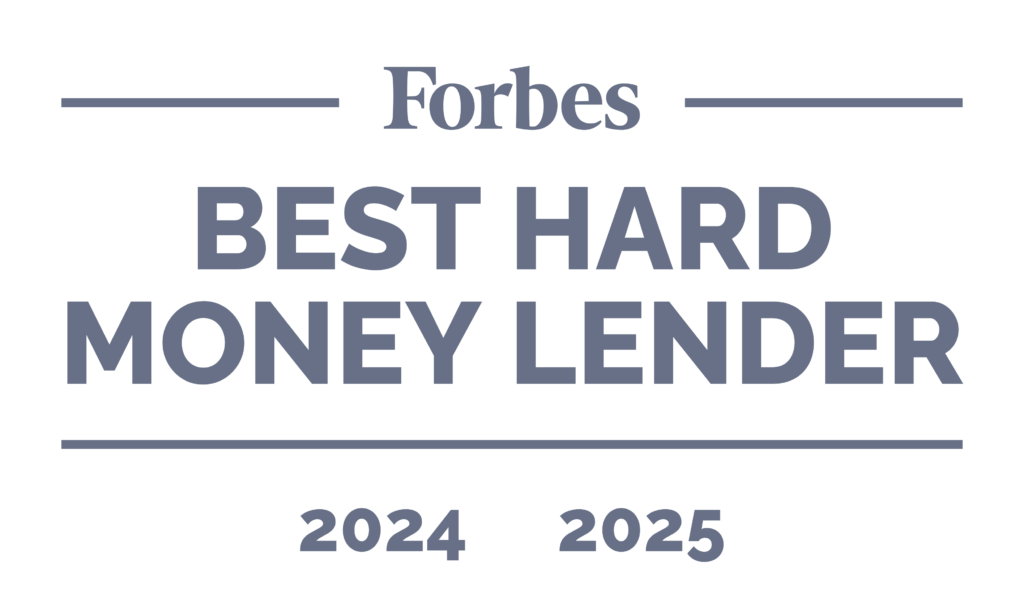As the stock market tumbles and the US heads towards potential recession, now is a good time to consider different ways property investors can weather economic volatility. One way for property investors to do this is with Debt Service Coverage Ratio (DSCR) loans. They give you greater flexibility and adaptability, which is important in volatile economic cycles.
DSCR Loans: The Basics
DSCR loans look at your property’s potential cash flow when you apply rather than your income. Known as a nonqualified mortgage or non-QM loan, they can be a fast and affordable way to invest in a property. DSCR loans enable savvy real estate investors to build portfolios and react quickly to new market opportunities.
Learn more in our dedicated deep-dive: what are dscr loans.
With a DSCR loan, you don’t have to jump through hoops to prove your current income to a bank or other lender. This is especially useful for self-employed borrowers, who may have a variable income stream that would make it difficult to get a conventional mortgage loan.
Our free DSCR loan calculator can give you an idea of the figures loan lenders look at to work out minimum loan terms. The principal criteria is whether the likely rental income for your property will be enough to cover the monthly loan payments and other outgoings. This is known as operating income.
If you’re a real estate investor with a complex income structure, DSCR loans can provide hassle-free funding based on your property’s ability to generate a regular rental income.
Why DSCR Loans Are Attractive to Investors
When you’ve seen the perfect property to add to your real estate portfolio, DSCR loans can help you act quickly to secure it before anyone else. Another advantage of choosing DSCR loans is the easier application process, with less paperwork required.
For example, a bank may ask for evidence of your credit score and personal income over a set period to determine your loan eligibility. This may take time to pull together, and all the time others are showing interest in the property. Getting an answer quickly, based on the property’s operating income, makes things easier for everyone involved.
During high-interest-rate environments, DSCR loans provide the flexibility of interest-only payments. These can be beneficial when the job market is uncertain, for example, and your property isn’t able to command the rental income it did when you bought it.
Connection to Economic Cycles
In times of economic expansion, the speed and ease of securing DSCR loans can help you expand your portfolio while rents are rising overall. The last thing you want is your finance provider slowing things down and negatively affecting your ability to move decisively when opportunities present themselves.
When the economy contracts, with fewer people in work and the reduced availability of credit, your rental income may decrease. Your DSCR loan can adapt to the times by switching to interest-only payments. You may also be able to negotiate to make overpayments when times are booming to future-proof repayments against a downturn in rental demand. Our DSCR loan calculator can help you crunch the numbers.
How Different Economic Phases Impact DSCR Loans
It pays to consider all economic conditions when investing in real estate over the long term.
Expansion (Boom)
You’ll likely have easier access to DCSR loans when the economy is booming due to favorable credit conditions. Rental incomes may also rise steadily, improving DSCR loan ratios and boosting property cash flow.
It’s important to avoid over-leveraging during growth periods. The economy goes through cycles, and what goes up must come down. Growing your portfolio sustainably will help shelter it from economic volatility and can help you avoid facing negative cash flow when the housing market takes a downturn.
Contraction (Recession)
During a recession, you may encounter difficulties making new real estate investments. Firstly, many lenders will tighten their standards, making it more challenging to secure traditional financing as well as non-QM loans. There’s also the knock-on effect of falling rental incomes impacting your ability to repay your DSCR loan.
This is why it’s important to make sure that your current debt obligations are easy to manage before recession hits. That way, you can still handle monthly payments. In unpredictable economic times, it’s wise to focus on liquidity and conservative leverage until there are consistent signs that the rental market is picking up again.
Recovery
When the green shoots of economic recovery start to show, there will be opportunities for your real estate business to flourish. For example, lower interest rates boosting your rental cash flow and refinancing options, and the possibility of reinvesting your profits into undervalued or distressed property with a long-term outlook.
Being prepared to act at the start of a recovery could mean refinancing and repositioning your properties to consider the new outlook. DSCR loans give you flexibility to ensure you’re not left behind or waiting for a traditional mortgage lender to make a decision on funding.
Peak
It’s not easy to predict when an economic bubble might burst. If you look back in time, many peaks and troughs have affected the real estate market. In the good times, your rental income and property values can soar but be tempered by rising interest rates. These increased costs can put pressure on your cash flow and ability to repay your DSCR loans.
To mitigate this, you may want to explore locking in favorable loan terms before Fed interest rates jump. The key here is to avoid the need for drastic action, such as selling one or more of your rental properties.
Adapting Your Investment Strategy to Economic Cycles
These are some easy ways to adjust your investment strategy to ride as smoothly as possible through varying economic cycles:
- Diversify property types: are you hedging against market-specific risks by investing in city center apartments as well as suburban single-family homes?
- Review your loan terms: are fixed-rate or adjustable-rate strategies right for you?
- Build cash reserves: can you prepare for future rental income drops?
- Monitor market conditions: do the numbers stack up regarding vacancy rates, rental demand and employment trends?
- Stress-test your portfolio: walk through different cash flow scenarios to assess your level of risk exposure and plan accordingly
Flexibility is King – Secure your DSCR Loan with Express Capital Financing
When you invest in rental properties, you’ll need a flexible mindset and an ability to manage risk. You need to adopt a proactive, strategic outlook so you’re always one step ahead. It’s also vital to be fully aware of the pros and cons of DSCR loans before you apply.
While you can’t control the economy, you can control your preparedness and response. By aligning your DSCR loan liabilities with economic cycles, you can mitigate the worst effects of market volatility and increase your chances of staying in a positive cash flow. A standstill strategy won’t serve you well in the long term, so it pays to be proactive.
Ready to make a move? Explore Express Capital Financing’s DSCR loans.






